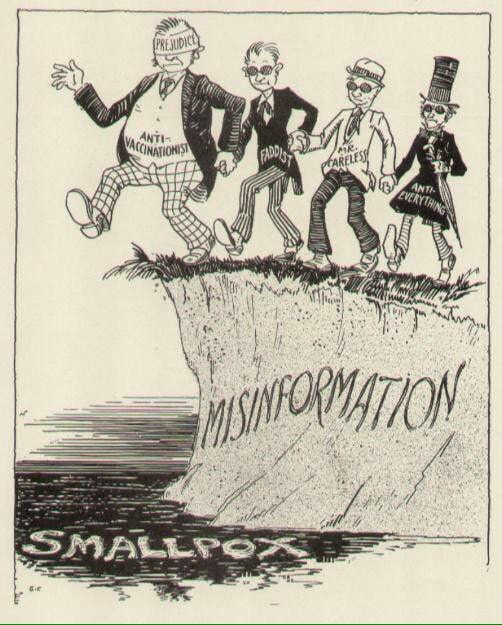|
Required reading in my grad school history program included Richard Hofstadter’s Anti-Intellectualism in American Life (1963), which tracked a long national history of celebrating ignorance. Second-guessing the experts began long before the Internet.
Are egos too fragile to admit ignorance or error? Three thoughts make it easy on the ego to acknowledge how much I don’t know: 1. I know more about some things than others. Thank goodness the contractors who fix our leaks and outages know what they’re doing. Equality doesn’t mean we’re equal at everything. 2. I’m teachable. In my areas of strength, there’s always more to learn. When the facts contradict what I thought I knew, they bring an opportunity to grow. 3. I’m curious. Ignorance can lead in either direction, to ask questions or to think we have all the answers. When we choose to open up rather than close down, we welcome those who have the expertise to answer our questions.
4 Comments
Dennis Doren
8/31/2021 08:19:44 pm
I can easily agree that ego is a factor in acting as if we know something we don't. It also seems some "celebrating [of] ignorance" is highly connected to one's personal relationships and identification. We find it far more important to act and believe as our significant others do. This may be because we select significant others to fit that mold, or because we are easily swayed once we make our selection of who to have in our lives. Either way, celebrated ignorance may not be corrected by asking someone to have an open mind (be teachable) or curious, but instead by the introduction of a new significant other with a different view.
Reply
9/1/2021 07:42:40 am
Interesting. Yes, I readily believe that people's beliefs are most affected by the people they know well and want/need to fit in with. Surely that holds for many whose actions follow the science, too, those who wear face masks as well as those who don't. That still leaves the question of why such large clusters of people, influencing and influenced by one another, "celebrate ignorance" - and whether they think of it that way. Or do they think of it in terms of celebrating common sense, or trusting one's instincts, or distrusting the authority of people who seem so disconnected with their lives?
Reply
Dennis M Doren
9/1/2021 07:59:24 am
Your list of alternative ways that people rationalize "celebrating ignorance" all seem likely. I would add issues such as loyalty to a "bigger cause" (including their view of patriotism), the perspective that "personal freedom" is more important than what someone else's facts suggest (e.g., "wearing a mask infringes on my freedoms"), and simple no-one-is-going-to-stop-me hedonism (e.g., dangerous sexual encounters, attending large gatherings for anticipated fun). And we tend to associate ourselves with people who think the same way we do, whatever the rationale from our combined lists. 9/1/2021 12:39:50 pm
All believable factors. Some seem to correlate more with political identification than others. Loyalty and authority (of a sort - not the authority of experts) have been found to be stronger motivators in personalities drawn to political conservatism, as I recall. As for personal freedom and no-one-will-stop-me hedonism, they are rationales on the conservative side when it comes to Covid - but when it comes to abortion rights or same-sex marriage or stepping outside traditional gender roles, freedom seems to be an argument ("rationale" if you oppose it) used more on the left. Either side may equate sexual behaviors on the other side with hedonism, depending on the issue.
Reply
Leave a Reply. |
AuthorI'm a historian who writes novels and literary nonfiction. My home base is Madison, Wisconsin. Archives
July 2024
|

 RSS Feed
RSS Feed